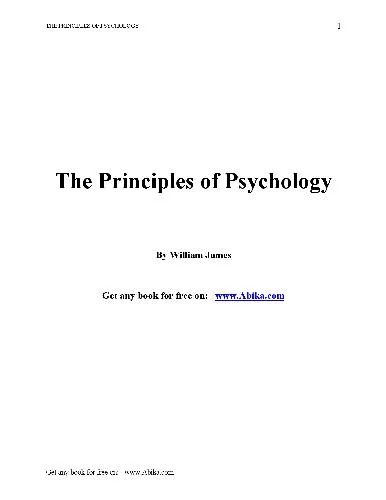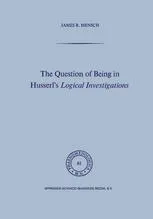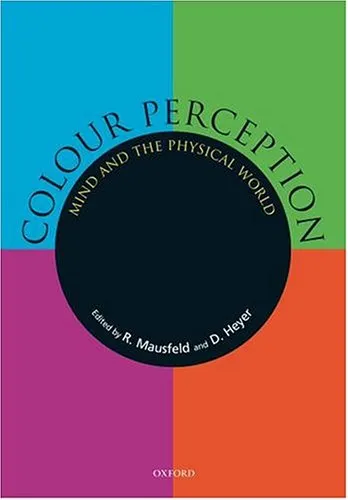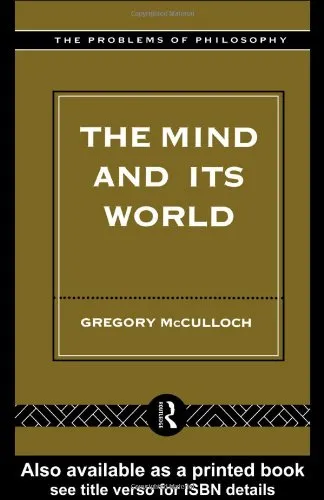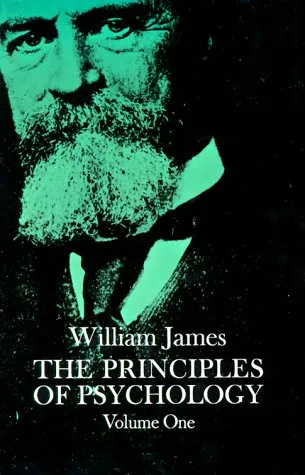The Principles of Psychology vol 1,2
4.7
Reviews from our users

You Can Ask your questions from this book's AI after Login
Each download or ask from book AI costs 2 points. To earn more free points, please visit the Points Guide Page and complete some valuable actions.Related Refrences:
Welcome to a comprehensive introduction to "The Principles of Psychology," a seminal work by William James, with significant contributions from George A. Miller. In this overview, we delve into the intriguing and intricate fabric of what is considered one of the foundational texts in psychology. Crafted with the intent to cater to both new readers and seasoned enthusiasts, this introduction will explore the rich intricacies of the text through a detailed summary, key takeaways, renowned quotations, and contextual significance.
Detailed Summary of the Book
"The Principles of Psychology" is an exhaustive exploration of psychology's chore elements. Split across two landmark volumes, the book was first published in 1890 and it profoundly shaped the discourse of psychology as an academic discipline. Volume 1 embarks on an exploration of consciousness, sensation, perception, and attention, delving into the philosophical underpinnings of mental life. William James endeavors to construct a scientific approach to unraveling these phenomena, often weaving metaphysical inquiries into the narrative.
In Volume 2, James extends his dissection towards more complex topics such as imagination, reasoning, emotions, the will, and the integration of the self. His narrative is characterized by an intricate balancing act between empirical observation and philosophical musings, forwarding ideas such as the stream of consciousness, the self as a multi-faceted entity, and pragmatic approaches to psychological study.
Key Takeaways
The book offers numerous insights that have had enduring impacts on both psychology and philosophy:
- The Stream of Consciousness: James introduced this metaphor to describe the continuous and flowing nature of human thought.
- The Pragmatic Method: Emphasizing the practical implications of thoughts and beliefs over abstract truths.
- The James-Lange Theory of Emotion: This innovative theory suggests emotions arise from physiological responses to stimuli.
- Habit Formation: James explores habit as a vital psychological and societal mechanism.
Famous Quotes from the Book
"The greatest discovery of my generation is that a human being can alter his life by altering his attitudes."
"We are like islands in the sea, separate on the surface but connected in the deep."
Why This Book Matters
"The Principles of Psychology" is more than just a textbook. It is a pioneering effort to fuse scientific rigor with philosophical inquiry. The book is revered not only for its depth and breadth but also for its influence on subsequent psychological theories, ranging from cognitive psychology to behavioral sciences. James's insights into the human mind laid the groundwork for both practical applications and theoretical advancements, marking a shift from philosophy to the scientific method in psychology.
Academic influence aside, the book's exploration of free will, consciousness, and the human spirit transcends time, offering a timeless guide for understanding the self and others. It invites readers, not just to observe but to introspect and question - a hallmark of James's pragmatic philosophy. In the ever-evolving field of psychology, James's principles remain relevant, urging a holistic view of human experience that continues to resonate with scholars and enthusiasts alike.
Free Direct Download
You Can Download this book after Login
Accessing books through legal platforms and public libraries not only supports the rights of authors and publishers but also contributes to the sustainability of reading culture. Before downloading, please take a moment to consider these options.
Find this book on other platforms:
WorldCat helps you find books in libraries worldwide.
See ratings, reviews, and discussions on Goodreads.
Find and buy rare or used books on AbeBooks.
1431
بازدید4.7
امتیاز0
نظر98%
رضایتReviews:
4.7
Based on 0 users review
Questions & Answers
Ask questions about this book or help others by answering
No questions yet. Be the first to ask!
